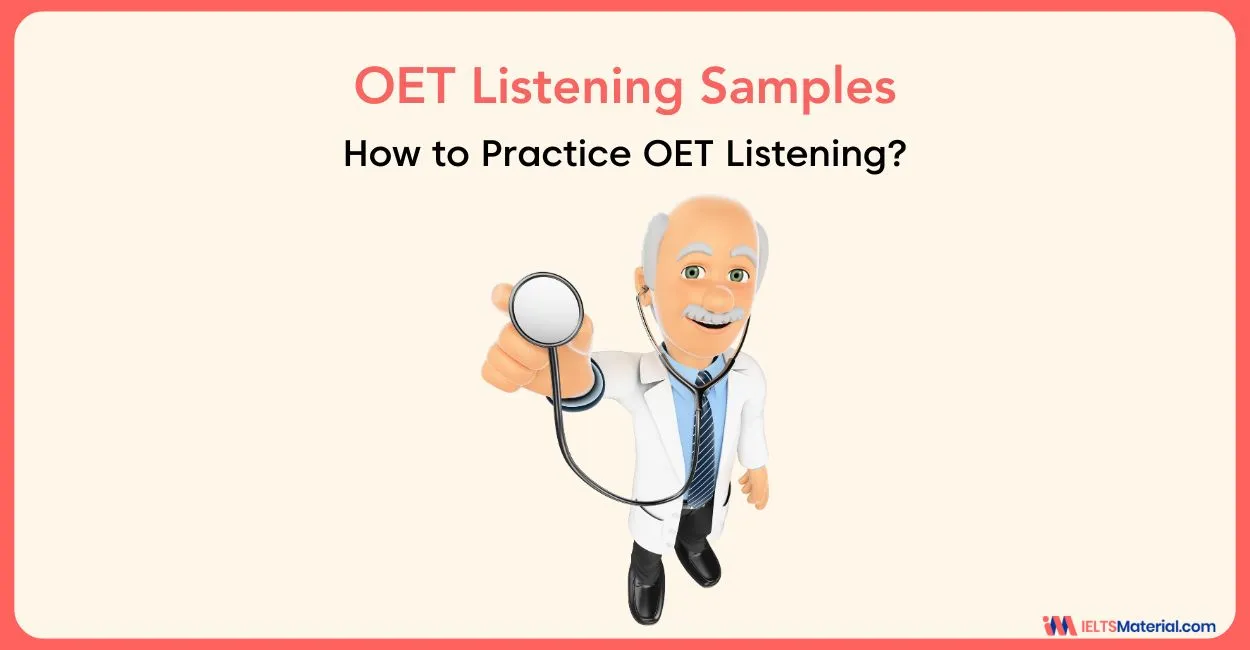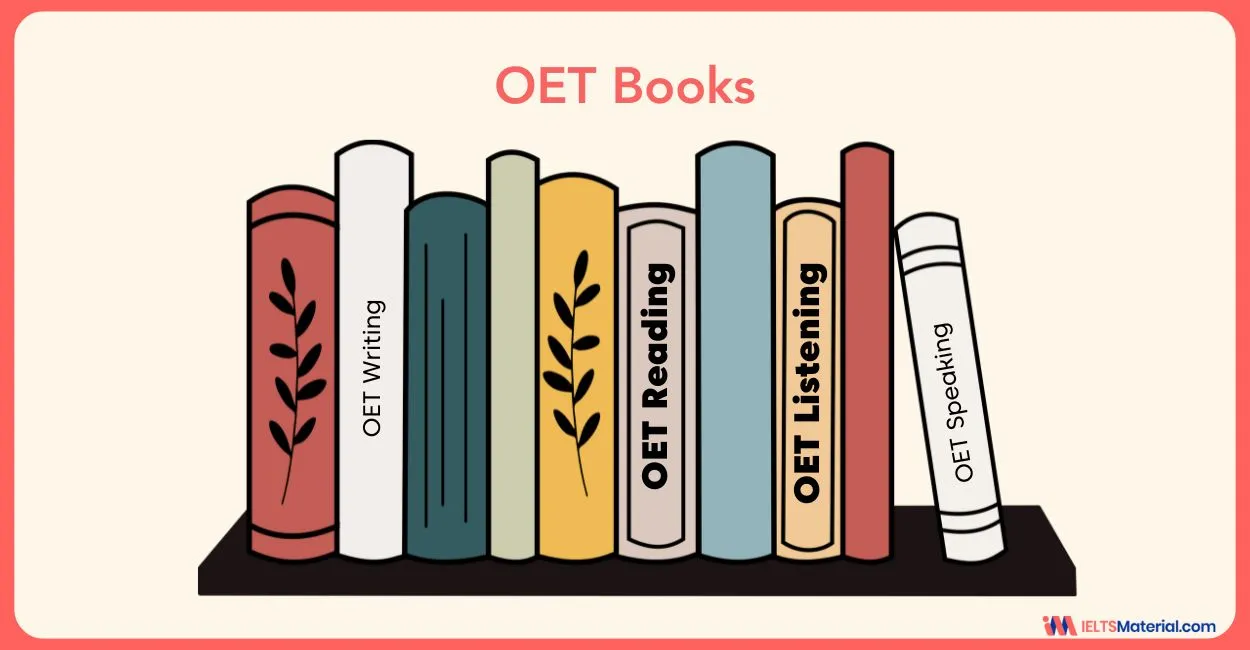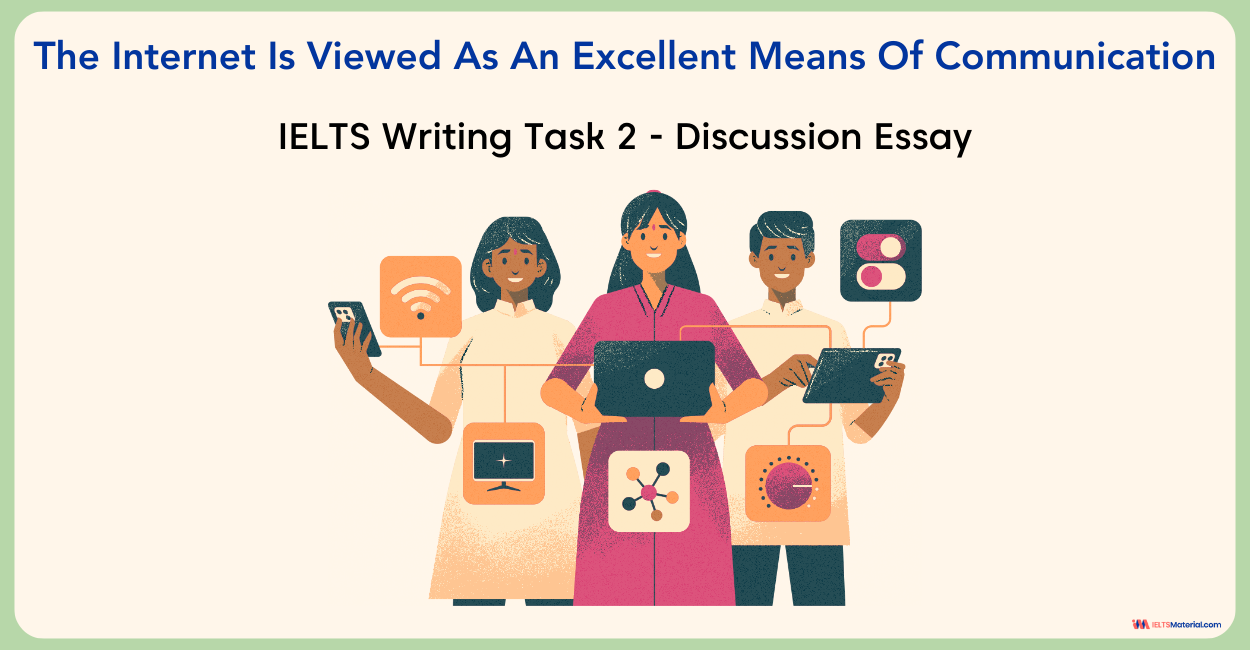The Internet Is Viewed As An Excellent Means Of Communication - IELTS Writing Task 2
Buckle up to read the band 7, 8, and 9 sample answers of the ‘How Many Children a Family Can Have in their Country Should be Strictly Controlled IELTS Writing Task 2 discussion essay and their vocabulary list here!
Table of Contents
- Question
- Structural Breakdown
- Band 7 Sample Answer For Writing Task 2 – The Internet Is Viewed As An Excellent Means Of Communication
- Band 8 Sample Answer For Writing Task 2 – The Internet Is Viewed As An Excellent Means Of Communication
- Band 9 Sample Answer For Writing Task 2 – The Internet Is Viewed As An Excellent Means Of Communication
- Connectors That’ll Improve Your Writing Task 2 Score For The Topic “The Internet Is Viewed As An Excellent Means Of Communication”

Try AI Essay Checker for Instant Band Score
In this IELTS Writing Task 2, we’ll see today’s digital world, where we have countless tools at our fingertips to communicate with one another. Yet ironically, many feel more isolated than ever. While social media and technology make it easier than ever to connect, the quality of our communication has suffered.
In this IELTS Writing Task 2 blog, we’ll explore the pros and cons of digital communication and make the case for why we still need face-to-face relationships. We’ll share sample answers for the same.
Before you begin, check out how to write an IELTS Discussion essay.
Question
| You should spend about 40 minutes on this task.
The internet is viewed as an excellent means of communication by many. However, there are others who would argue that it is actually destroying our communication skills. Discuss both views and give your opinion. Give reasons for your answer and include any relevant example from your own knowledge or experience. You should write at least 250 words. |
Structural Breakdown
Essay TypeDiscussion Essay Introduction
Body Paragraph 1
Body Paragraph 2
Body Paragraph 3
Conclusion
|
Band 7 Sample Answer For Writing Task 2 – The Internet Is Viewed As An Excellent Means Of Communication
The internet has become an integral part of modern communication, revolutionizing the way individuals connect and share information. Proponents argue that it serves as a powerful catalyst for globalization, enabling instantaneous communication and breaking down geographical barriers. Social media platforms, such as Facebook and Twitter, have transformed into virtual meeting places where people from diverse backgrounds can share their thoughts and experiences.
Critics argue that the brevity and informality of online communication, characterized by the use of emojis and abbreviations, may lead to a degradation of language proficiency. The speed and convenience of digital communication might encourage impulsive responses, sacrificing the depth and thoughtfulness inherent in face-to-face interactions.
While the speed of online communication is advantageous, we must not lose sight of the importance of depth and nuance in our interactions. Striking a balance between the efficiency of digital communication and the richness of traditional forms is crucial for maintaining robust communication skills.
To illustrate, consider the rise of remote work facilitated by digital communication tools. While remote collaboration has become more accessible, there is a growing recognition of the importance of periodic face-to-face meetings. These in-person interactions allow for a depth of communication that may be challenging to achieve solely through emails or video calls.
In conclusion, while the internet undeniably enhances communication by fostering global connectivity, there are valid concerns about its potential to erode traditional communication skills. Striking a balance between the efficiency of online communication and the depth of face-to-face interactions is imperative for navigating the evolving landscape of communication in the digital age.
Vocabulary
1. Unprecedented: Never done or known before; without previous example.
Example: The rapid development of technology in recent years is unprecedented, transforming various aspects of our daily lives.
2. Degradation: The condition or process of deteriorating or being reduced to a lower rank or level.
Example: The degradation of the environment due to pollution is a pressing global concern.
3. Inherent: Existing as a natural or essential part of something.
Example: The risks inherent in the experimental procedure were carefully considered before its implementation.
4. Impulsive: Acting or done without forethought; acting on sudden desires or instincts.
Example: Her impulsive decision to quit her job without a backup plan led to unforeseen challenges.
5. Robust: Strong and healthy; vigorous and full of health.
Example: A robust immune system is essential for resisting various illnesses and infections.
Ready to ace the IELTS Writing?
Get our expert help today with a FREE Demo session, Now!
Band 8 Sample Answer For Writing Task 2 – The Internet Is Viewed As An Excellent Means Of Communication
The internet, often celebrated for its transformative impact on communication, has reshaped the way people connect and share information globally. Advocates underscore its role in democratizing communication, providing a platform for diverse voices and breaking down geographical barriers. Social media platforms, blogs, and online forums have become virtual town squares, allowing individuals to express their ideas and engage in conversations on a scale never seen before.
However, as the internet continues to shape the landscape of communication, concerns have arisen regarding its potential adverse effects on language proficiency and the depth of discourse. Critics argue that the brevity and informality of online communication, exemplified by platforms like Instagram and Snapchat, may contribute to a decline in language richness. The prevalence of emojis and abbreviations, while enhancing efficiency, can compromise the nuanced expression of thoughts and emotions.
In my perspective, the internet serves as a powerful facilitator of communication but requires a thoughtful approach. While digital platforms offer unparalleled speed and convenience, it is crucial to recognize the value of depth in communication. The challenge lies in preserving the art of meaningful conversation while embracing the benefits of technological advancements.
Consider the example of educational institutions incorporating online learning platforms. While these platforms enhance accessibility to education, there is a growing acknowledgment of the need for interactive discussions and face-to-face sessions to ensure a comprehensive learning experience. It highlights the importance of a balanced approach that leverages the advantages of digital communication while recognizing its limitations.
In conclusion, the internet has undeniably transformed communication, providing new avenues for expression and connection. However, a conscientious effort is required to safeguard the richness of language and depth of discourse in the face of evolving digital communication methods.
Vocabulary
1. Democratizing: Making something accessible to all people; bringing democracy to a process or system.
Example: The internet has played a key role in democratizing access to information, allowing people from diverse backgrounds to participate in the global conversation.
2. Brevity: The quality of being brief or concise; expressing much in few words.
Example: The journalist’s writing style is characterized by brevity, conveying complex ideas in succinct sentences.
3. Nuanced: Characterized by subtle differences or distinctions; having a nuanced understanding involves recognizing and appreciating fine details.
Example: The politician provided a nuanced response to the question, considering multiple perspectives before giving an answer.
4. Conscientious: Wishing to do one’s work or duty well and thoroughly; diligent.
Example: The conscientious student always completes assignments on time and pays attention to detail.
5. Comprehensive: Including or dealing with all or nearly all elements or aspects; thorough.
Example: The research paper provided a comprehensive analysis of the historical events, covering various angles and perspectives.
Learn the 5 ways in which you can approach writing a Discussion Essay to get a Band 8.
Band 9 Sample Answer For Writing Task 2 – The Internet Is Viewed As An Excellent Means Of Communication
The advent of the internet has ushered in a new era of communication, fundamentally altering the way individuals interact and share information. Its impact is profound, enabling unprecedented global connectivity and fostering a virtual environment where ideas can be exchanged at an unparalleled speed. Proponents extol the internet’s ability to democratize communication, giving voice to diverse perspectives and transcending geographical constraints.
However, amidst the celebration of the internet’s transformative power, questions loom about its potential consequences on the depth and richness of human communication. Critics argue that the brevity and informality inherent in digital interactions, epitomized by platforms like TikTok and Twitter, may contribute to a subtle erosion of language proficiency. The rise of visual communication, including emojis and memes, challenges traditional notions of expression, prompting concerns about the nuanced nature of conversations.
In my considered opinion, navigating the digital landscape requires a nuanced approach. The internet, with its efficiency and immediacy, undoubtedly enhances communication, but it necessitates a conscious effort to preserve the depth of discourse. Balancing the benefits of rapid connectivity with a commitment to meaningful and nuanced communication is essential for individuals to thrive in this evolving communication paradigm.
Consider the example of professional collaborations in the corporate world. While digital platforms facilitate quick exchanges of information, successful teams recognize the importance of periodic face-to-face meetings for fostering deeper connections and understanding. It exemplifies the need for a holistic approach that integrates the advantages of digital communication with the irreplaceable depth offered by traditional, in-person interactions.
In conclusion, the internet is a powerful force reshaping the fabric of human communication. Embracing its advantages while safeguarding the richness of language and depth of discourse demands a conscious and balanced approach, ensuring that the digital age enhances, rather than diminishes, the art of meaningful conversation.
Vocabulary
1. Ushered: To cause or mark the start of something new; to lead or guide.
Example: The invention of the smartphone ushered in a new era of mobile communication.
2. Profound: Having deep meaning or significance; intense or penetrating.
Example: The scientist made a profound discovery that revolutionized our understanding of the universe.
3. Epitomized: To serve as a perfect example or representation of something.
Example: The historic speech by Martin Luther King Jr. epitomized the ideals of the civil rights movement.
4. Conscious: Having an awareness of one’s thoughts, feelings, sensations, or surroundings; mentally perceptive or alert.
Example: After practicing mindfulness meditation, she became more conscious of her thoughts and emotions throughout the day.
5. Holistic: Dealing with or considering the whole system or entity rather than focusing on individual parts.
Example: Holistic medicine emphasizes the importance of treating the entire person, including their physical, mental, and emotional well-being.
Connectors That’ll Improve Your Writing Task 2 Score For The Topic “The Internet Is Viewed As An Excellent Means Of Communication”
Connectors play a crucial role in linking ideas and creating a smooth flow of information within a text. Here is a list of common connectors that can be used in the provided answers:
- While
- Careful
- However
- In conclusion
- As with
- Though
- Thus
- Therefore
- So
- Hence
- Nevertheless
- Whereas
- Albeit
- Despite
- Unless
Learn IELTS Writing Task 2 with IELTSMaterial
If you’re looking to enhance your writing skills for the IELTS exam, IELTSMaterial can be a valuable resource. Feel free to check out our highly rated IELTS Vocabulary ebook and Comprehensive IELTS Writing (Academic) Band 8 Preparation Course with example answers or talk to our experts if you need more advice. Take the step you need to boost your prep further and receive a Band 8+ on the IELTS Writing Task 2!
Also Check:
- Some people are born with certain talents – IELTS Writing Task 2
- IELTS Writing Task 2 Discussion Essay: Explanation & Breakdown With Sample Answers
- Discipline is An Ever-Increasing Problem in Modern Schools Writing Task 2
- Some People Think Governments Should Spend Money- IELTS Writing Task 2
- Obesity is a Serious Problem in Many Countries- IELTS Writing Task 2
Practice IELTS Writing Task 1 based on report types

Start Preparing for IELTS: Get Your 10-Day Study Plan Today!
Recent Articles

Nehasri Ravishenbagam

Nehasri Ravishenbagam

Kasturika Samanta





Post your Comments